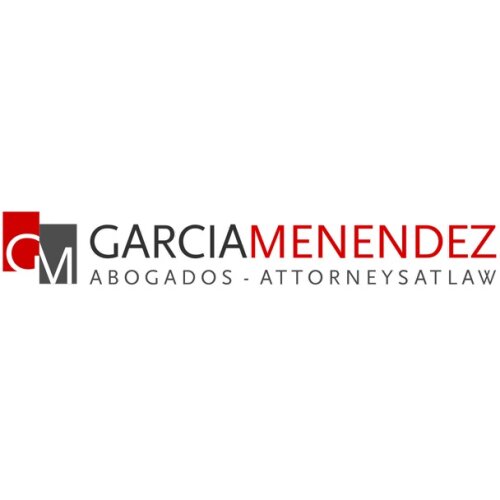Best Corporate Governance Lawyers in Buenos Aires
Share your needs with us, get contacted by law firms.
Free. Takes 2 min.
List of the best lawyers in Buenos Aires, Argentina
About Corporate Governance Law in Buenos Aires, Argentina
Corporate governance refers to the system of rules, practices, and processes by which companies are directed and controlled. In Buenos Aires, Argentina, corporate governance laws are designed to promote transparency, accountability, and fairness in corporate operations. These laws primarily regulate the relationships between shareholders, the board of directors, management, and other stakeholders, ensuring that companies operate within the ethical and legal standards set by Argentine legislation.
Why You May Need a Lawyer
There are several situations where legal guidance in corporate governance becomes essential. Common reasons include the formation of a new company, restructuring the board of directors, drafting or revising bylaws, handling shareholder disputes, responding to regulatory investigations, or ensuring compliance with local requirements for corporate transparency and disclosure. Lawyers can also advise on mergers and acquisitions, corporate secretarial matters, and risk management strategies. Professional legal help is particularly valuable in complex cases involving conflicts of interest or potential breaches of fiduciary duty.
Local Laws Overview
Corporate governance in Buenos Aires is primarily regulated by the General Companies Law (Ley de Sociedades Comerciales No 19.550) and complemented by rules from the Argentine Securities and Exchange Commission (Comisión Nacional de Valores - CNV) for listed companies. Key aspects include:
- Requirements for the structure and functioning of boards of directors and supervisory boards
- Mandatory shareholder meetings and the rights of minority shareholders
- Obligations for financial disclosure, reporting, and transparency
- Protocols for decision-making and conflict-of-interest management
- Special regulations for publicly traded companies, including independent director requirements and audit committees
- State oversight for certain regulated industries
Frequently Asked Questions
What is corporate governance and why is it important?
Corporate governance refers to the framework of rules, systems, and processes that control and direct companies. It is important because it helps protect the interests of shareholders and other stakeholders, ensures compliance with laws, and improves business performance.
Which types of companies are subject to corporate governance regulations in Buenos Aires?
All types of corporations registered in Buenos Aires, including publicly listed companies and private corporations, must comply with corporate governance laws, though the specific requirements can vary depending on the size and structure of the business.
How are boards of directors structured under Argentine law?
Argentine law outlines specific requirements for the composition, appointment, and operation of boards of directors. For example, public companies must have a minimum number of directors and, in some cases, include independent directors.
What rights do minority shareholders have?
Minority shareholders are protected by various provisions, including the right to request information, attend meetings, challenge certain decisions, and, in some cases, request the appointment of independent auditors or initiate derivative actions.
What are the main disclosure requirements for companies?
Companies are required to disclose financial statements, relevant corporate decisions, and any significant changes in company control or structure, especially if they are publicly listed.
How can conflicts of interest be managed?
Directors and officers must disclose any personal interests in company decisions. Procedures for managing conflicts of interest are established in both company bylaws and national regulation, and failure to comply may lead to legal consequences.
What happens if a company violates corporate governance laws?
Violations can result in fines, administrative sanctions, removal of directors, or even criminal liability in severe cases. The company can also suffer reputational damage and face lawsuits from shareholders or business partners.
Who supervises compliance with corporate governance regulations?
The main regulatory bodies are the Argentine Securities and Exchange Commission (CNV) for listed companies, and the General Inspectorate of Justice (IGJ) for companies registered in Buenos Aires.
Do foreign investors have any special corporate governance requirements?
While foreign investors are subject to the same general laws as domestic shareholders, they should consider specific requirements for registration, reporting, and currency controls that may affect their involvement in Argentine companies.
When should I consult a corporate governance lawyer?
It is advisable to consult a lawyer when founding a company, merging with or acquiring another business, facing disputes between shareholders or directors, updating company bylaws, or whenever there are doubts about compliance with legal obligations.
Additional Resources
For further information or assistance regarding corporate governance in Buenos Aires, the following organizations can be helpful:
- Argentine Securities and Exchange Commission (Comisión Nacional de Valores - CNV)
- General Inspectorate of Justice (Inspección General de Justicia - IGJ)
- Buenos Aires Bar Association (Colegio Público de Abogados de la Capital Federal)
- Argentine Institute of Corporate Governance (Instituto Argentino de Gobierno Corporativo)
- Chambers of Commerce and professional business organizations
Next Steps
If you believe you need legal assistance with corporate governance matters, start by assessing your company's current situation and gathering relevant documentation, such as your corporate bylaws, board minutes, and financial reports. Seek a consultation with an experienced corporate lawyer in Buenos Aires who is familiar with local and national regulations. During your meeting, clearly state your concerns and objectives, and ask about the recommended steps for compliance or resolution of any issues. Proactive legal advice can help prevent future problems and ensure your company operates in accordance with Argentine law.
Lawzana helps you find the best lawyers and law firms in Buenos Aires through a curated and pre-screened list of qualified legal professionals. Our platform offers rankings and detailed profiles of attorneys and law firms, allowing you to compare based on practice areas, including Corporate Governance, experience, and client feedback.
Each profile includes a description of the firm's areas of practice, client reviews, team members and partners, year of establishment, spoken languages, office locations, contact information, social media presence, and any published articles or resources. Most firms on our platform speak English and are experienced in both local and international legal matters.
Get a quote from top-rated law firms in Buenos Aires, Argentina — quickly, securely, and without unnecessary hassle.
Disclaimer:
The information provided on this page is for general informational purposes only and does not constitute legal advice. While we strive to ensure the accuracy and relevance of the content, legal information may change over time, and interpretations of the law can vary. You should always consult with a qualified legal professional for advice specific to your situation.
We disclaim all liability for actions taken or not taken based on the content of this page. If you believe any information is incorrect or outdated, please contact us, and we will review and update it where appropriate.














